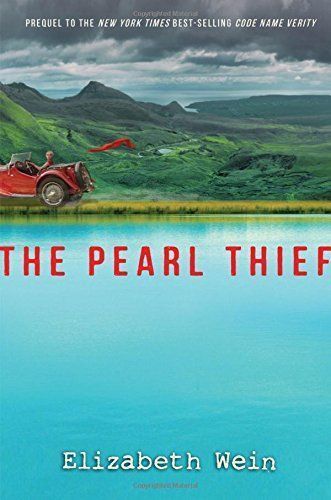
The Pearl Thief
Before Verity . . . there was Julie. When fifteen-year-old Julia Beaufort-Stuart wakes up in the hospital, she knows the lazy summer break she'd imagined won't be exactly what she anticipated. And once she returns to her grandfather's estate, a bit banged up but alive, she begins to realize that her injury might not have been an accident. One of her family's employees is missing, and he disappeared on the very same day she landed in the hospital. Desperate to figure out what happened, she befriends Euan McEwen, the Scottish Traveller boy who found her when she was injured, and his standoffish sister, Ellen. As Julie grows closer to this family, she witnesses firsthand some of the prejudices they've grown used to-a stark contrast to her own upbringing-and finds herself exploring thrilling new experiences that have nothing to do with a missing-person investigation. Her memory of that day returns to her in pieces, and when a body is discovered, her new friends are caught in the crosshairs of long-held biases about Travellers. Julie must get to the bottom of the mystery in order to keep them from being framed for the crime. This exhilarating coming-of-age story, a prequel to the Printz Honor Book Code Name Verity, returns to a beloved character just before she first takes flight.
Reviews
Connor @cgbart
Amanda Kordeliski@akordeliski
Moray Lyle McIntosh@bookish_arcadia
Justine Rose@justineslibrary
Laura@lastblues13
Michele Papa@mleanne14
Rina@lostcanticles
Heather Eason@heason
Lydia Ford@escapist_books
Kelly Gorman@dreadpiratekel
Paige Morgan@paigecm
kanda@kandaventuring